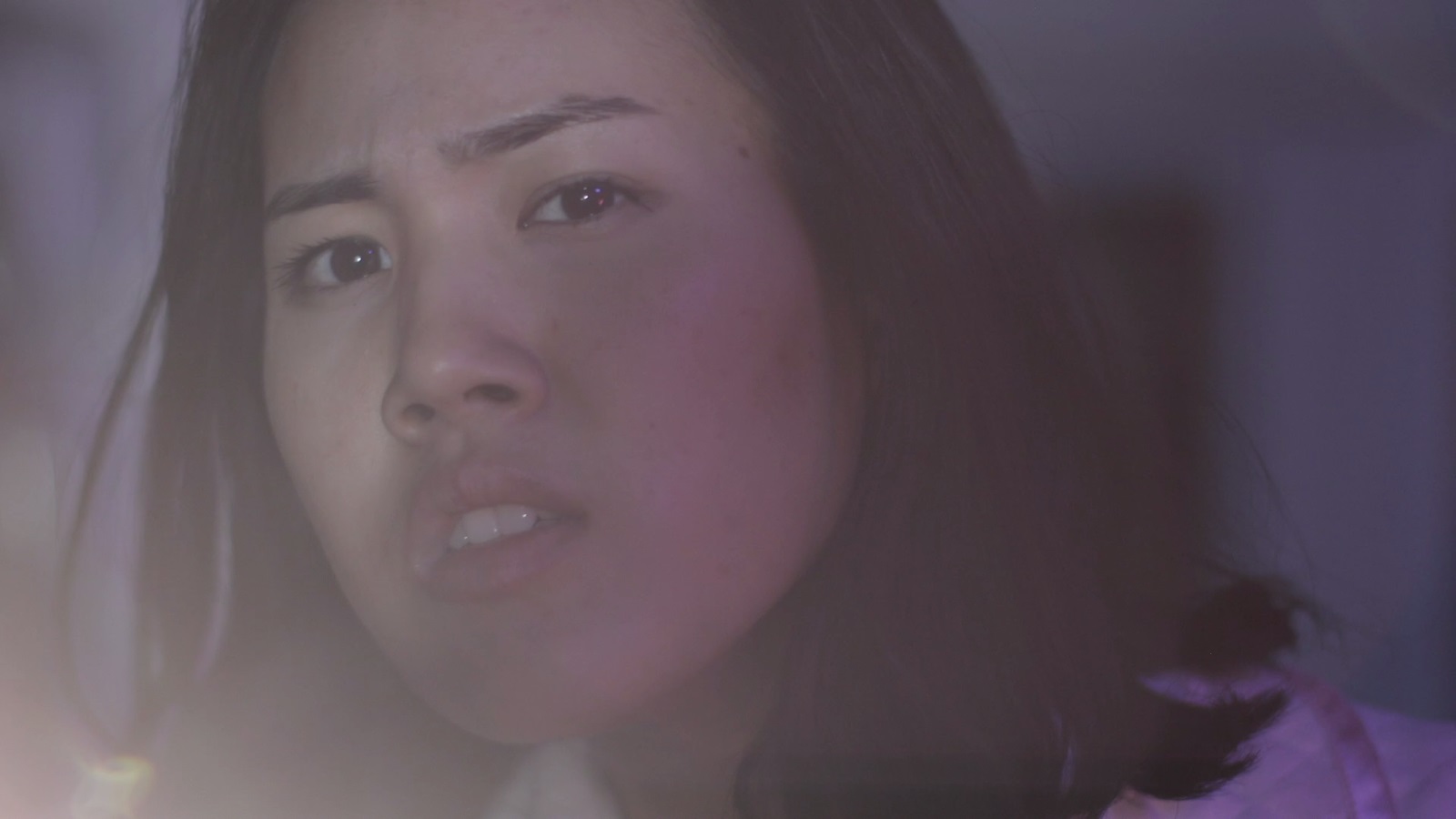Gina Rose could hardly have guessed that by the time her sci-fi debut feature I Can’t Sleep came out, we’d all have more than a slight understanding of its characters’ apocalyptic conundrum. Protagonist Leonore tries to meet a self-imposed writing deadline despite extraterrestrial orbs dancing outside the kitchen window. The Bay Area denizens of Leonore’s story-in-progress navigate life and retail shifts on the very day aliens are scheduled to arrive on Earth.
But on the eve’s of I Can’t Sleep’s online screening at the 46th annual Boston Sci-Fi Festival (access to the film begins on Thu/11), this tightrope walk between the mundane and cataclysmic could hardly hit in a more timely manner. How to handle work schedules, mental health care, workplace flirtations on a day that brings fresh chaos of historic dimensions? Hey, in 2021, that’s our daily bread.
“Would we care about the same things if we knew the world was about to end?” Rose, who wrote, directed, and produced the entirely self-funded film, asks in her interview with 48 Hills. “Or that the world as we know it was about to completely change?”
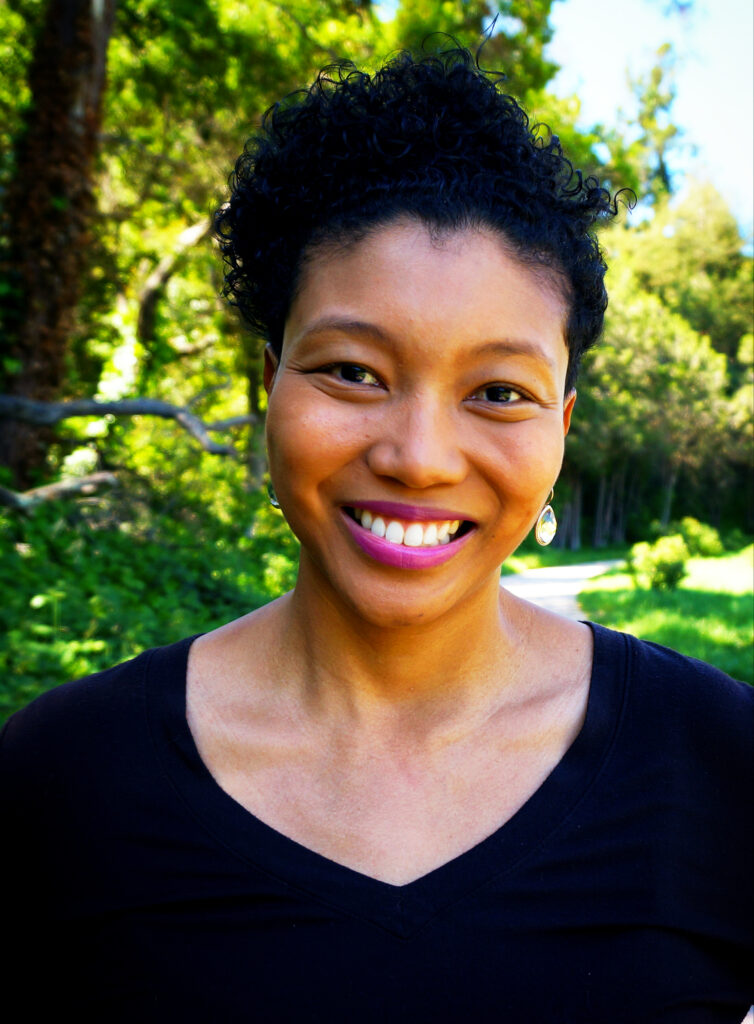
It’s worth more than a thought, as is checking out I Can’t Sleep, which makes excellent use of its genre’s ability to unsettle via the hypothetical. In the script Rose, who is also a mental health provider, parses the alternating numbness and panic experienced by victims of trauma. Her sure hand fleshes out characters who trick you into familiarity before doggedly escaping every box in which you-as-viewer seek to locate them. An atmospheric soundtrack by Kyle Lim of The Holographic Children pulses within Leonore’s jewel-toned not-so-safe space.
“It’s a cool thing to live through, I guess,” says a character quizzed on her thoughts by a TV news channel in I Can’t Sleep. “It is! I have to remind myself of that.” The movie watches us, trying to makes sense of times that defy understanding.
48 HILLS When and where and via what films or books did your relationship to the sci-fi genre begin?
GINA ROSE I actually never considered myself a big sci-fi fan, but one of my best friends (since the fifth grade) is! Growing up together, we watched a lot of The X-Files, Sliders, and Star Trek. We even went to the The X-Files convention! When I was in the seventh grade, my English teacher had us watch and analyze The Twilight Zone episode “The Monsters Are Due on Maple Street.” It scared the living daylights out of me, but I totally see how it influenced how I look at stories involving the interaction between humans and aliens. I would say that the first sci-fi movie I really got obsessed with as a kid was Men in Black. I still think that’s such a creative, original, funny movie — also a big influence.
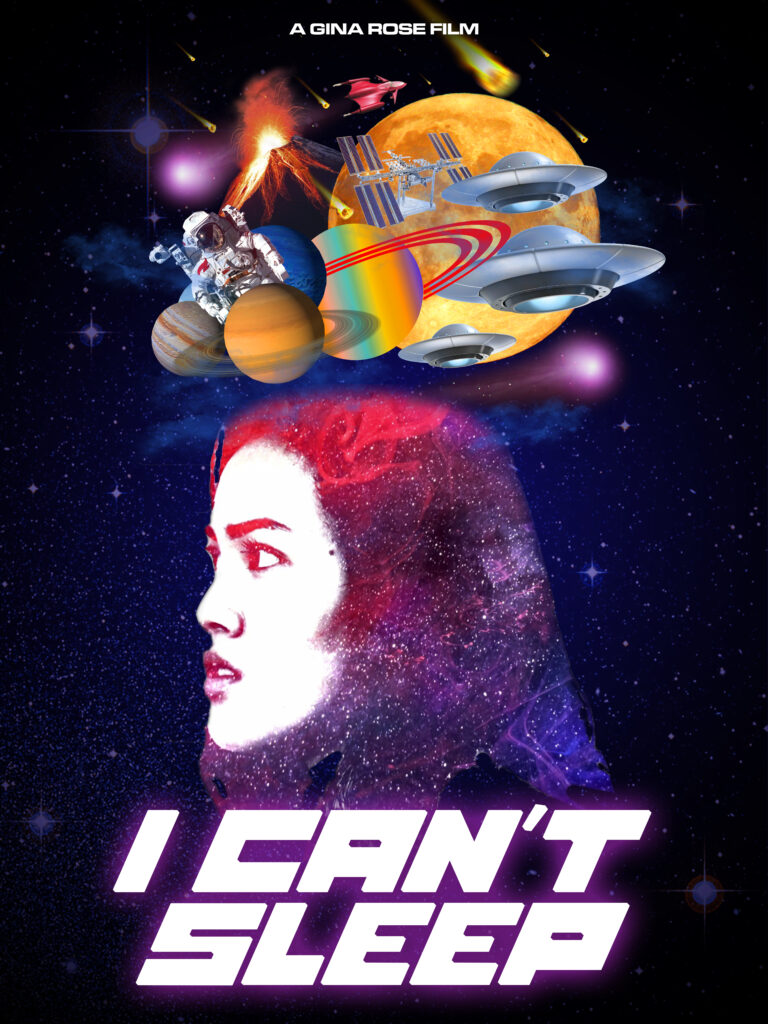
48 HILLS You funded this film yourself, wowwwww. What gave you the wherewithal to imagine that self-reliant production plan and make it happen?
GINA ROSE I have wanted to make films since I was 14, but I had to pursue that interest on the side because I majored in psychology and subsequently pursued a career in the mental health field. I was adamant, however, about not giving up on my filmmaking dreams, so over the years I took screenwriting and video production and acting classes in my spare time and also made short films.
A few years ago, I started learning about micro budget films. I was also working two jobs in the mental health field. One day I thought, “What am I working so hard for?” I asked myself what I really wanted, and of course my brain said: “make movies.”
In researching micro budget films, I discovered the movie Frisky by Claudia Pickering, which she made on a budget of $5,000 in 2014. I listened to every podcast and read every article I could find about her filmmaking process, and learned that she made the film over the course of two weeks in San Francisco and paid the cast and crew via profit share (didn’t pay them up front, but promised to pay them if the film turned a profit). I reflected on this for a long time and determined that the main difference between myself and Claudia Pickering is that she’s a blonde white woman and I’m not, so I thought: “I’d better save twice the amount she did and pay my cast and crew.” It took a year, but I saved $10K to make I Can’t Sleep, and I wrote the film with the budget constraints in mind. I thought about the locations I had access to, how I could weave a storyline into those places, and what I could achieve affordably.
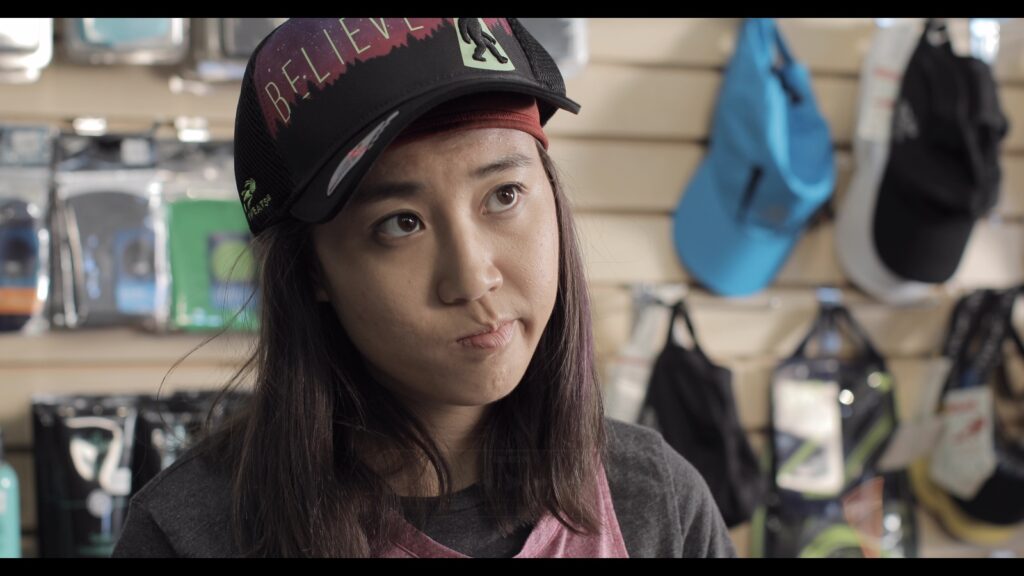
48 HILLS The characters’ reactions to the alien landing in the film made me think of our strange relationship to current events. I’m wondering if you see the landing as having a connection to another significant event or happening in our modern society?
GINA ROSE Yes, I totally do! But of course, when I wrote the film I had no idea we’d be in the throes of a pandemic just a couple of years later. The idea for the alien landing story that Leonore writes came to me one day when I was studying in a coffee shop, watching the two people behind the counter flirting with each other. I thought: “Would they still be doing this if they knew aliens were arriving tonight?” I guess it was a strange thought to have, but I like playing with the idea that we’re living under extraordinary circumstances without realizing it, similar to how we are now. Would we care about the same things if we knew the world was about to end? Or that the world as we know it was about to completely change?
I wanted to show how some people would find meaning in living through something like that (as the character Astrid does), whereas others are jaded and don’t believe things ever truly change (like Thomasina in the movie). I’d like to think that after the pandemic passes, we will have learned about ourselves in a way that we couldn’t have under “normal” circumstances.
Over the years, I have watched many alien invasion movies and wondered: What if the world just didn’t care about aliens arriving? What if it was just another day and people had to go to work and deal with their usual problems, and an alien arrival was just another backdrop, like an election or a holiday… or a pandemic?
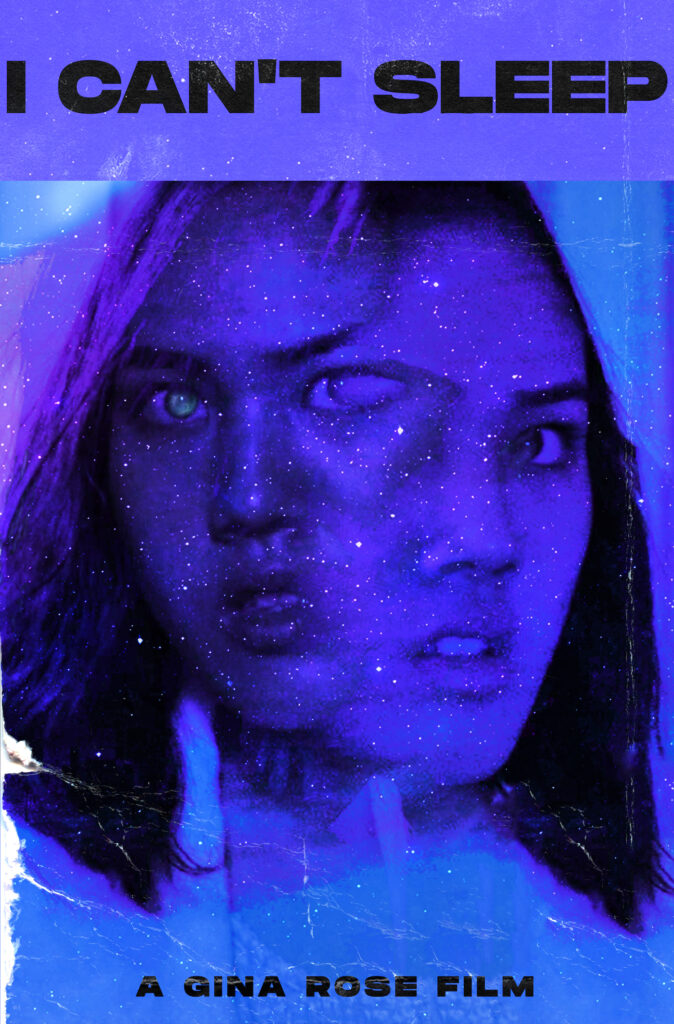
48 HILLS It’s notable in this day and age that the person our protagonist spends the most time with in the film is a police officer. Why did you make the character of Officer Hushfield a cop?
GINA ROSE Officer Hushfield is a character I created for a screenplay I wrote when I was in high school called The Waterbed, and for some reason, he stayed with me over the years. In The Waterbed, he was kind of an idiot, a person who means well but doesn’t go about it the right way out of ignorance and a tendency to try too hard.
Like many people of color in America, I have had some really bad experiences with the police. At the same time, I have had some positive experiences with the police. In my role as a mental health professional, I have worked with two amazing student resource officers (which are police officers who are stationed at a school). One of them unfortunately died, and I along with everyone else was heartbroken because he was an incredible person and an asset to our community. I think on some level I wanted to show an experience with a police officer that I would like to have. One that isn’t defined by power or dominance or violence, but that shows a person genuinely trying to be helpful out of the goodness of their character.
That’s what my late colleague represented to me. And maybe an optimistic part of me also thought that if I put that out into the world on screen, it could have a better chance of manifesting in real life.
48 HILLS There’s a lot of haggling in the movie over the ending of Leonore’s short story. Did you have similar conflicts over the climax of I Can’t Sleep?
GINA ROSE Not the ending, but the making of the film was an ongoing string of challenges that I had to overcome. Like Leonore, I had had trouble finishing my creative projects in the past. But something about having to face so many obstacles in completing I Can’t Sleep made me double down and commit in an even deeper way to finishing it. This turned out to be a good thing, because now I feel much stronger than I did before. I now know that no matter what challenges or setbacks get thrown my way, there is something deep inside me that won’t give up.
It’s empowering to learn that about yourself.
Stream a double feature of I Can’t Sleep with Asbab Bazi’s Plaything via the Boston Sci-Fi Festival starting Thu/11 at 6pm PST. Double feature $10, various festival passes available. Register here.


